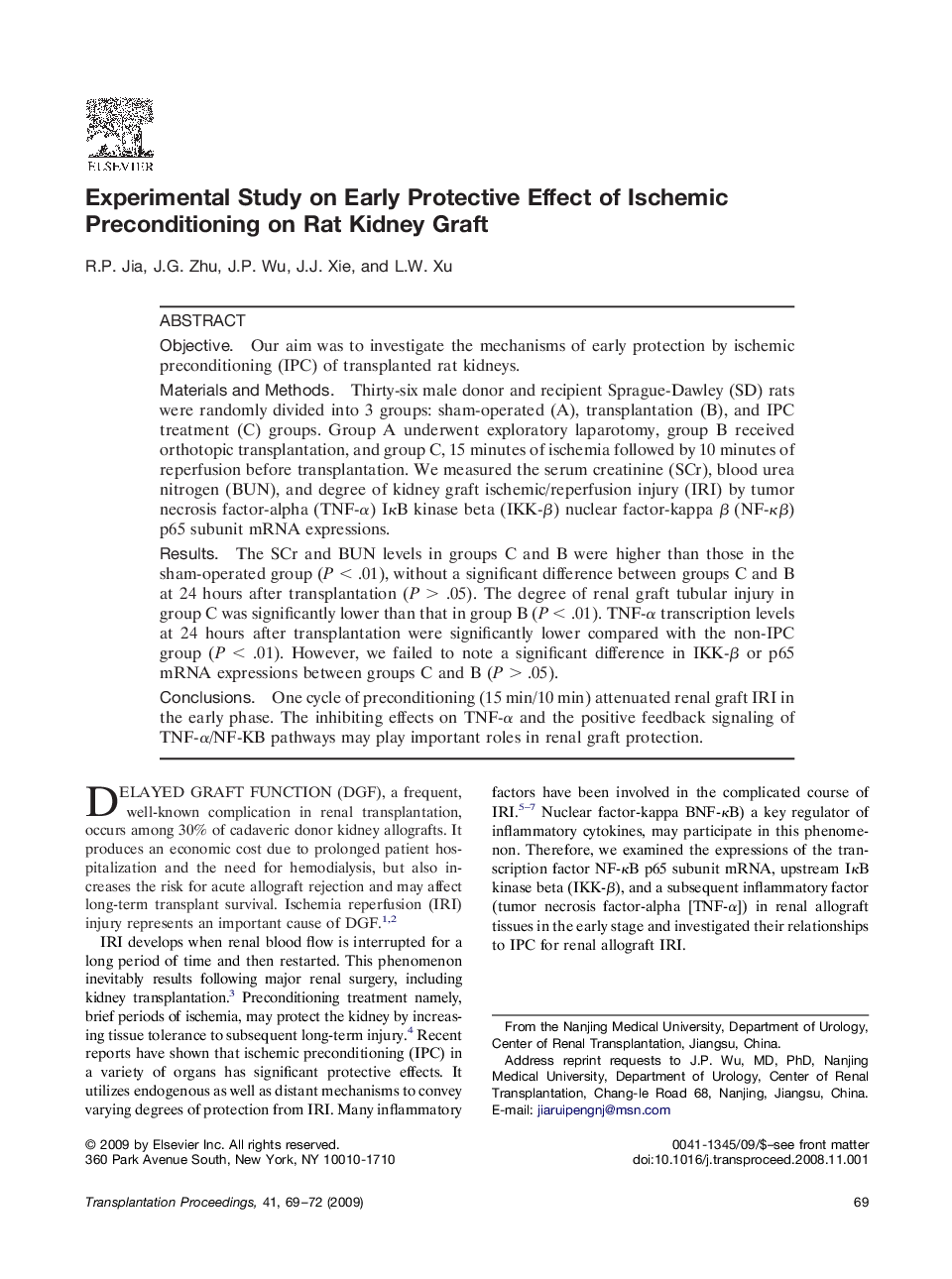| Article ID | Journal | Published Year | Pages | File Type |
|---|---|---|---|---|
| 4260068 | Transplantation Proceedings | 2009 | 4 Pages |
ObjectiveOur aim was to investigate the mechanisms of early protection by ischemic preconditioning (IPC) of transplanted rat kidneys.Materials and MethodsThirty-six male donor and recipient Sprague-Dawley (SD) rats were randomly divided into 3 groups: sham-operated (A), transplantation (B), and IPC treatment (C) groups. Group A underwent exploratory laparotomy, group B received orthotopic transplantation, and group C, 15 minutes of ischemia followed by 10 minutes of reperfusion before transplantation. We measured the serum creatinine (SCr), blood urea nitrogen (BUN), and degree of kidney graft ischemic/reperfusion injury (IRI) by tumor necrosis factor-alpha (TNF-α) IκB kinase beta (IKK-β) nuclear factor-kappa β (NF-κβ) p65 subunit mRNA expressions.ResultsThe SCr and BUN levels in groups C and B were higher than those in the sham-operated group (P < .01), without a significant difference between groups C and B at 24 hours after transplantation (P > .05). The degree of renal graft tubular injury in group C was significantly lower than that in group B (P < .01). TNF-α transcription levels at 24 hours after transplantation were significantly lower compared with the non-IPC group (P < .01). However, we failed to note a significant difference in IKK-β or p65 mRNA expressions between groups C and B (P > .05).ConclusionsOne cycle of preconditioning (15 min/10 min) attenuated renal graft IRI in the early phase. The inhibiting effects on TNF-α and the positive feedback signaling of TNF-α/NF-KB pathways may play important roles in renal graft protection.
